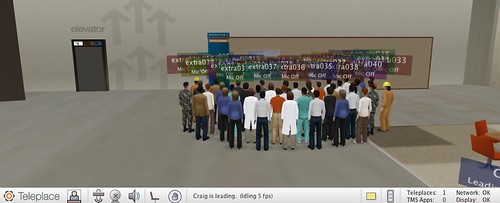If I had a dime for every article I have seen since AOL went to flat rate back in 1996 that foretold the coming end of flat rate internet access plans and the inevitability of metered pricing, I’d have so much money I could actually afford what wireline providers dream of providing as a monthly fee. Despite the “inevitability” of metered pricing for nearly 15 years, it hasn’t happened and I don’t expect it any time soon. Why? Because not only is it wildly unpopular with the customers (it is one of the few things powerful enough to overcome the switching cost for anyone with a choice), but the economics of it do not make a heck of a lot of sense. Heck, Comcast (the largest residential broadband provider) announced in its earnings call on 4Q 09 that it is reducing its capital expenditure on network capacity for 2010 because it has nearly completed necessary upgrades for DOCSIS 3.0, which gives it all the capacity it needs for the foreseeable future. “We don’t need to invest anymore in our network because we have all the capacity we need” is a might inconsistent with “we need to switch to metered pricing so we can afford to expand our network capacity and create incentives against ‘bandwidth hogs’ and other mythical beasts.”
I can forgive wireline providers for indulging in metered pricing fantasies, while admiting them for perpetuating the useful myth og limited capacity to ward off regulation. But when this article on the purported inevitability of metering wireless plans. This strikes me as “Keep The Government Out of My Medicare” lunacy.
As the article itself concedes without saying directly, wireless broadband plans are already metered. Blow past your monthly usage cap and you will pay per-minute charges. For those not old enough to remember, this was the old AOL metered pricing model. You got ten hours for free, then got charged on a per-minute basis. They abandoned it because customers hated it and moved to flat rate price plans. So what wireless providers apparently mean by “metered” is “find a away to reduce the usage cap further by pretending to call it something else.” I expect this will not catch on any better than the efforts to change pricing structure on the wireline side, and for the same reason. The economics don’t make sense.
Which brings us to the next lesson on network economics. The cost structure of building and maintaining the network is marked by high fixed cost and low marginal cost. That is to say, the vast majority of cost comes from building the network itself, regardless of how many customers use it. Once the network is built, the actual marginal cost of each customer is fairly low. Even an intense user does not “consume” very much of the network resources (the supposed “bandwidth hog” is a problem only because network capacity is ridiculously oversold). The argument that the majority of subscribers subsidizes the few “bandwidth hogs” is simply rubbish. The question is simply how obscenely high a rate of return can the network operator squeeze out of each customer.
Back in the old days, we used to require providers to prove cost. Sure we had metered pricing, but that was so that the very profitable areas could subsidize the high cost areas. Nowadays, we rely on “the market” to regulate cost, with the result that profit per customer for the major providers continues to rise. I’m cynical enough to wonder if that’s why we see this endless parade of speeches by network operators and articles by their sycophants about the “inevitability” of metered pricing — so we will thank our lucky stars that when we are outrageously ripped off that it is at the “bargain” of overpriced flat rates.
Stay tuned . . .




